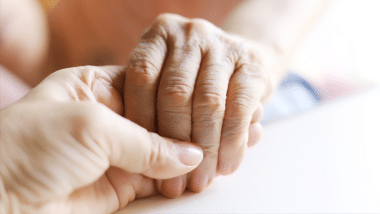The largest body of doctors in Ireland has urged the Oireachtas not to legalise assisted suicide.
In giving evidence to the Oireachtas Committee on Assisted Dying, the Royal College of Physicians of Ireland (RCPI) stated its complete opposition to the practice.
The RCPI is Ireland’s largest postgraduate medical training body and a professional body for medical doctors with over 11,000 members. In contrast, Irish Doctors supporting Medical Assistance in Dying, which was also invited to give evidence, represents around 100 doctors.
Trust
The RCPI has held its position since 2017, following the recommendations of an internal expert group which had been convened to consider the evidence and arguments. In 2020, a review took place and came to the same conclusion.
Speaking on behalf of the group, Dr Feargal Twomey, a consultant in palliative medicine, called assisted suicide “contrary to best medical practice”, adding that “the potential harms outweigh the arguments that can be made in favour”.contrary to best medical practice
He told the committee that doctors and other healthcare professionals are delivering “compassionate and expert care, including end-of-life care” every day in a variety of settings, and that they “build relationships of trust over time”.
Threat to palliative care
He continued: “There have been major advances in promoting high-quality care at the end of life across a spectrum of healthcare provision in Ireland, in particular, through the provision of palliative care services and increased training in palliative care and palliative medicine across the professions.
“Legislation for assisted suicide threatens to undermine these efforts, risking a shift away from funding, development and delivery of new and existing palliative care services and potentially reducing research in this area.”
He added: “There is a need for more and better palliative care resources, for example, a greater availability of psychiatric services and treatments. We must focus on meeting these needs.”
contrary to best medical practice
Safeguards ‘systematically eroded’
Dr Twomey also highlighted the worrying trends in countries where assisted suicide or euthanasia has been legalised.
“Recent analysis of data from the Netherlands, Belgium and Colombia confirms a progressive broadening of the limits that have been initially established by law to the practice of assisted dying, both physician-assisted suicide and euthanasia in these countries. This is also the case in Canada, where safeguards that had supposedly been in place have been systemically eroded over the past nine years.
“In the Netherlands, there has been an extension of the eligible age groups, including new-born infants, as well as children of any age in Belgium.
“A recent report analysing the Oregon Death with Dignity Act since its enactment confirms that eligibility criteria have expanded since that Act was instated. The 15-day waiting period has been waived and patients receive assisted suicide or euthanasia even if they have non-terminal illnesses, such as arthritis, complications from a fall, hernia, stenosis and anorexia.”

‘Don’t turn doctors into death givers’, Oireachtas committee warned
Isle of Man approves principle of euthanasia
Canadian medic: ‘Drug addicts should be allowed to request euthanasia’
Lord Carey and Rabbi Romain ‘ignoring dangers’ of legalising euthanasia



